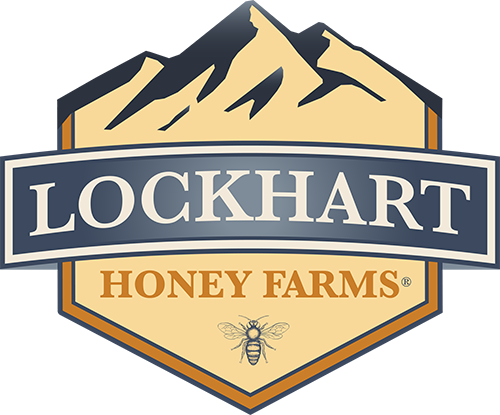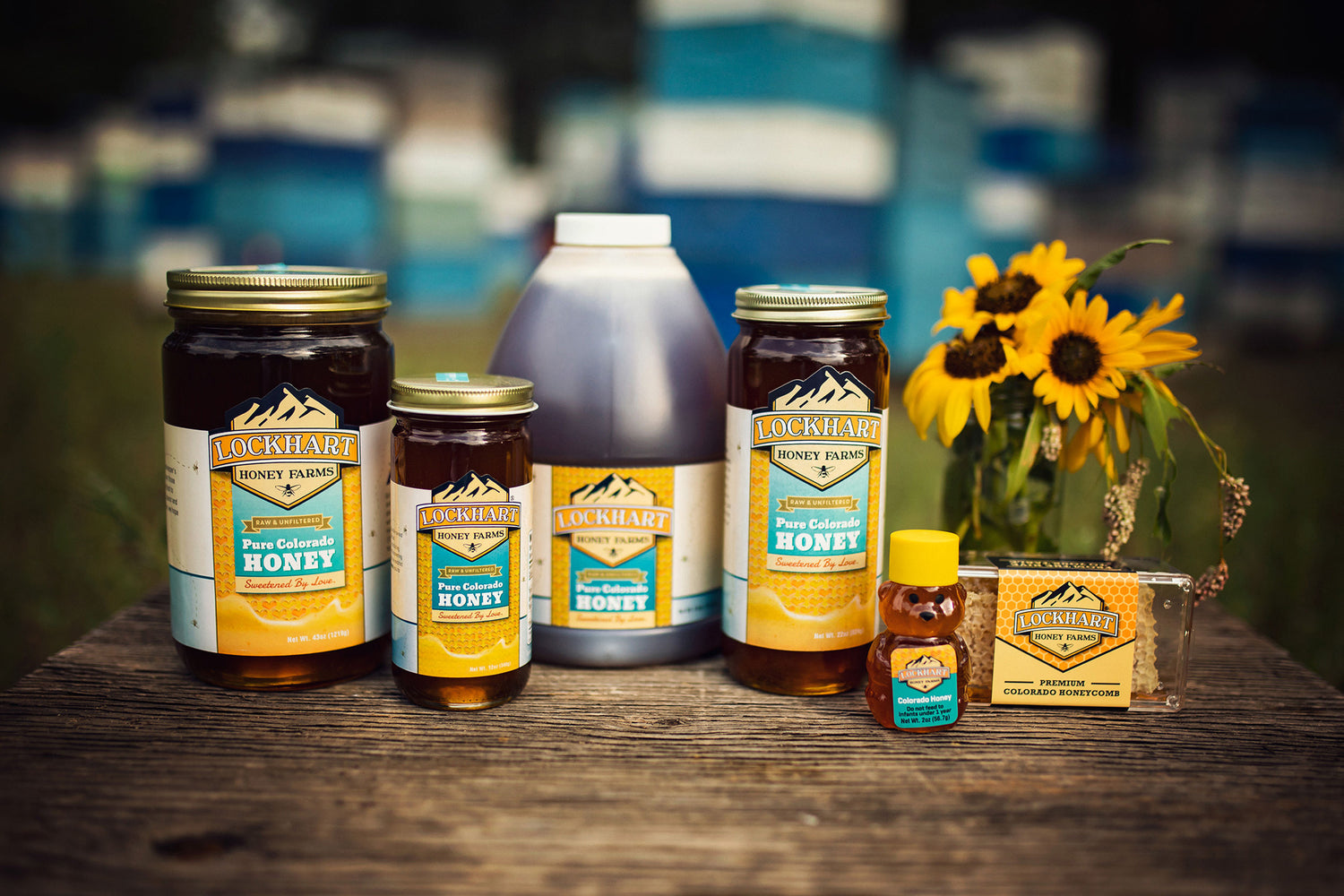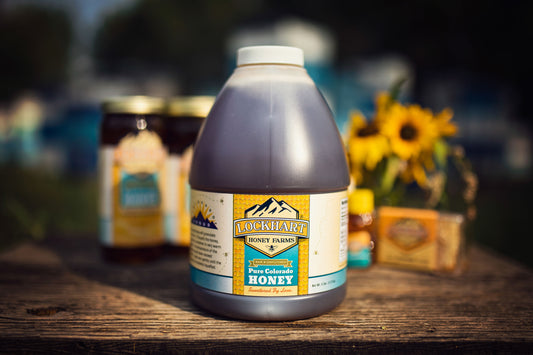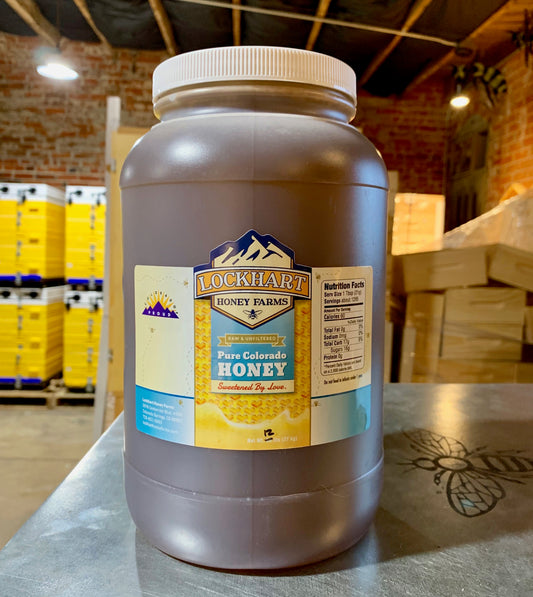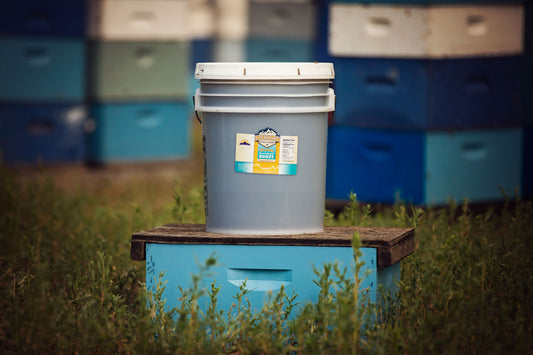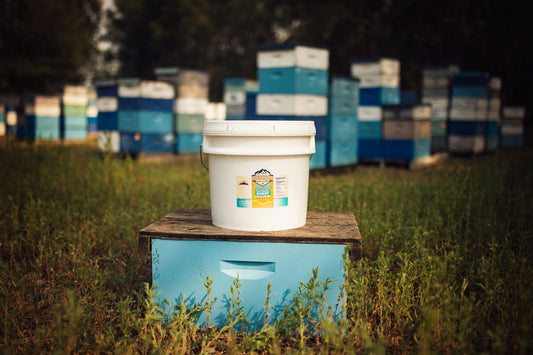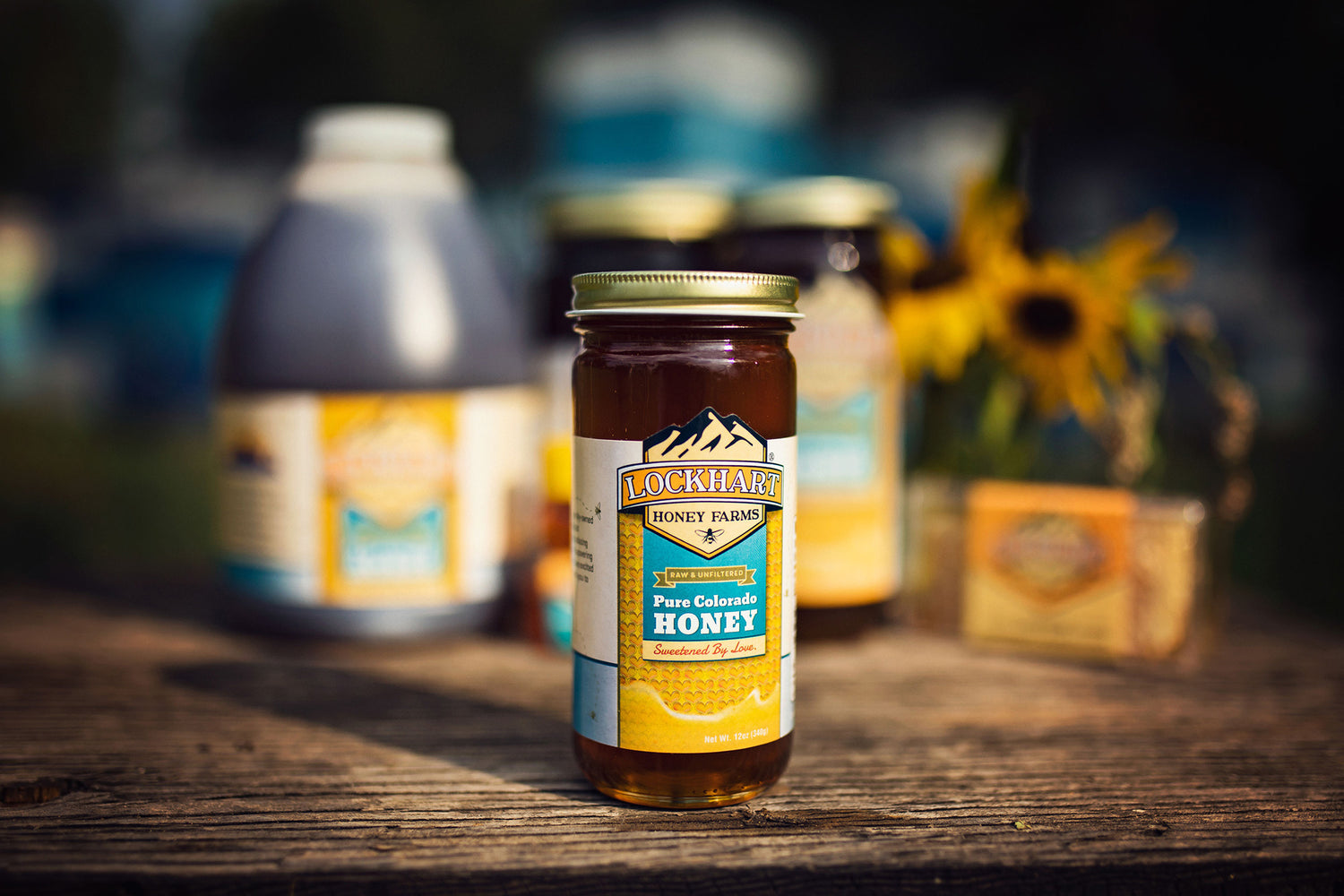Our Colorado Honey
Once you taste a spoonful of our signature “hive to table” Colorado honey, you’ll want to swirl it into your morning coffee or use it to create one of your favorite baked goods!
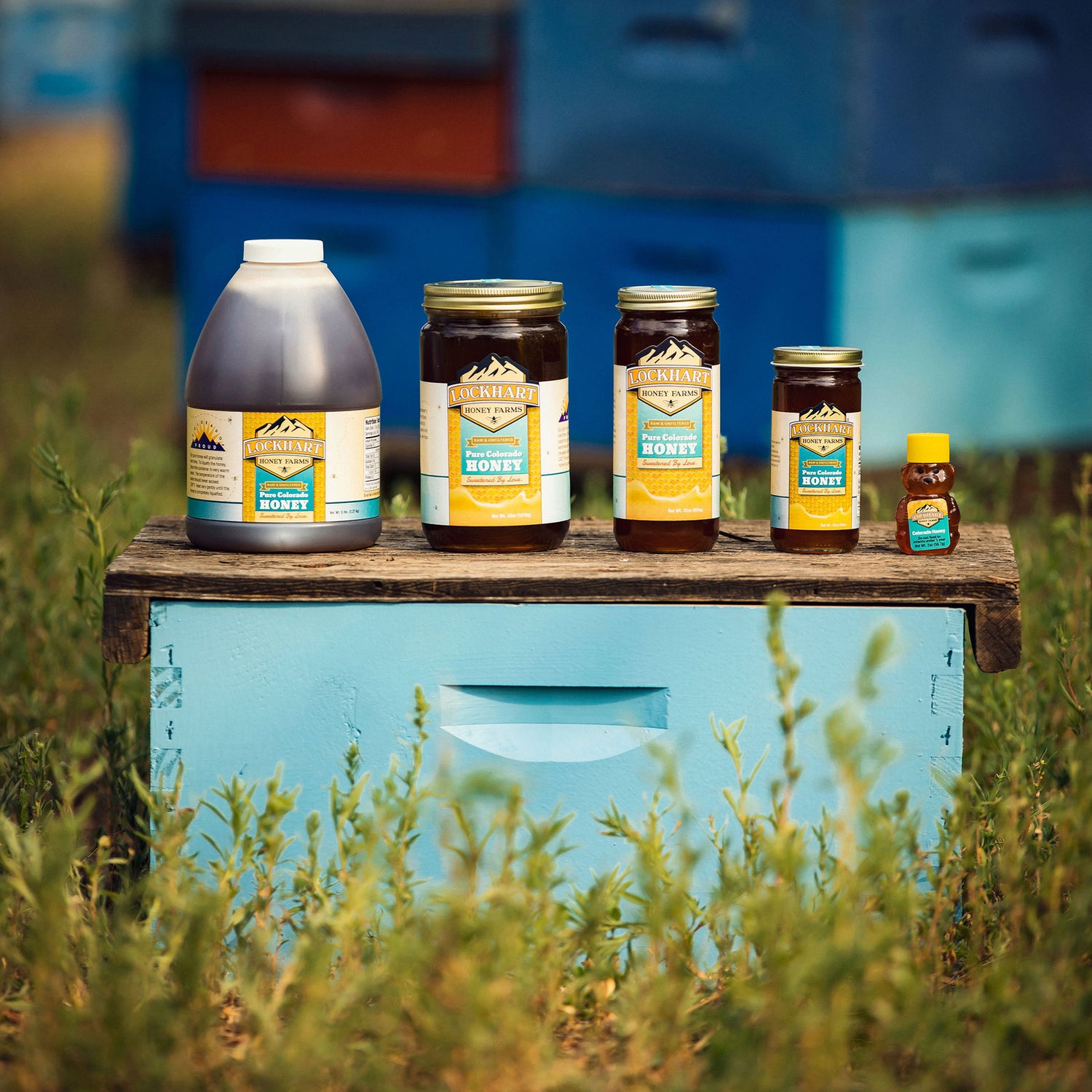
Details about our honey:
Primary Floral Source: Alfalfa
- Our bee yards are located along Fountain Creek (south of Colorado Springs) and the Arkansas River Valley
- All of our bee yards are placed near expansive alfalfa fields
Flavor Profile:
- Warm and buttery
- Medium to intense flavor
- Notes of spice
Color:
- Light Amber
Our Nebraska and South Dakota Honey
The distinct differences between our Colorado and Nebraska/South Dakota honey show the impact that local floral sources and climate have on the honey our bees produce.
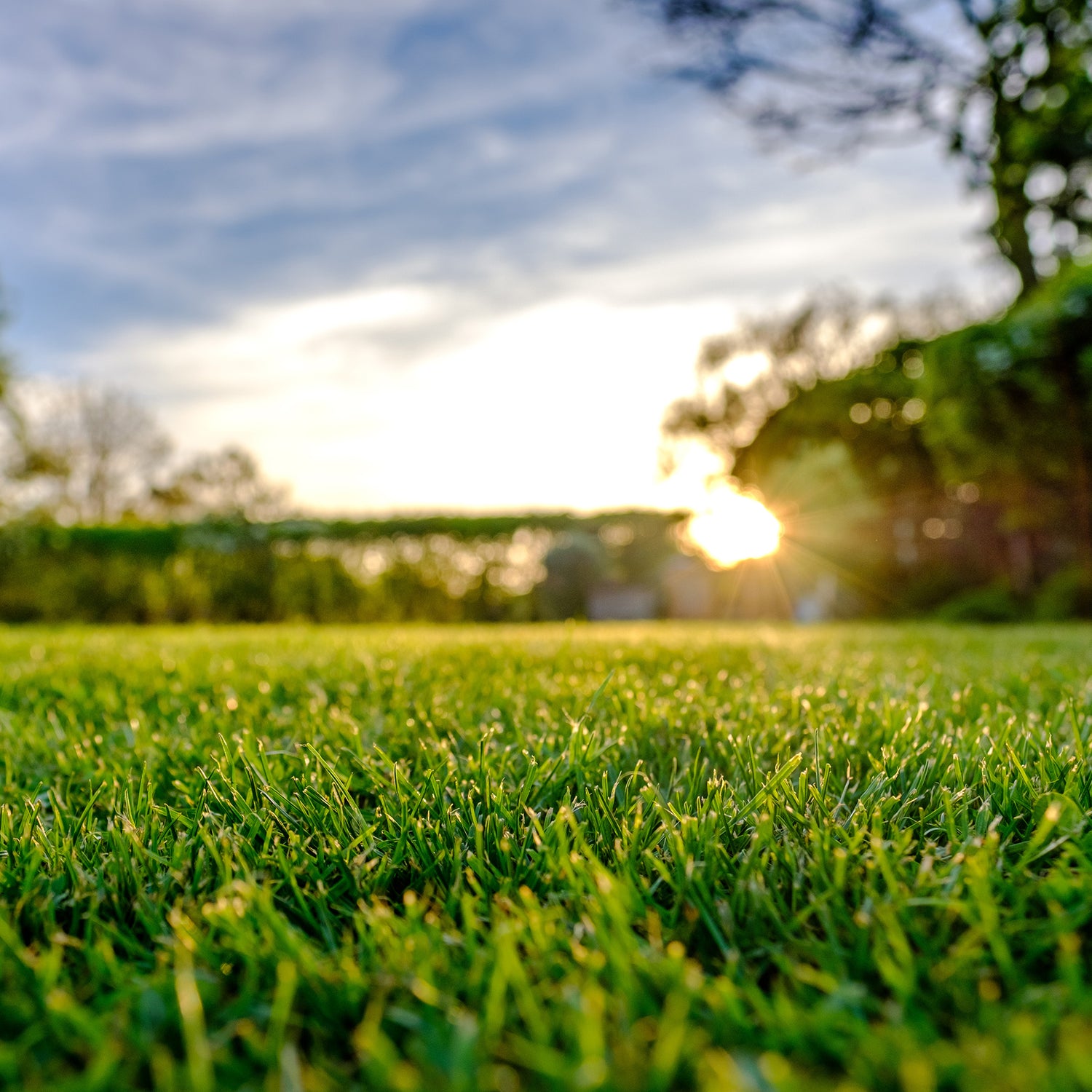
About our Nebraska honey:
Primary Floral Source: Clover
- Our bee yards are located near the Niobrara River of Nebraska and the Little White River of South Dakota near natural pastures where wild clover flourishes.
Flavor Profile:
- Medium-delicate flavor
- Warm and floral notes
- Spice undertones
- Savory
Color:
- White
Check out our Resources page for ideas on how to incorporate honey into your sweet and savory recipes as well as your daily skin care routine!
FAQs
Is your honey raw and unfiltered?
Unfortunately, there are not clear definitions for these two terms within the industry. However, we believe that “raw” honey describes honey as it exists in the hive. Similarly, “unfiltered” honey means that our honey is minimally processed. We do as little to the honey as possible during the extracting process. We only heat the honey enough to be able to pour it (around 100 degrees F) and slightly strain the honey in order to remove any remaining wax.
Is your honey organic?
No, our honey is not organic. Truly organic honey produced in the US is very rare. Why? Because in order to be certified as organic, the surrounding farms, fields, and flowers that the bees visit must be certified as organic. Since bees can travel about five miles from their hive in search of flowers, that is a large radius to cover that must all be certified as organic.
Buyer beware! Many honey products labeled as “organic” in grocery stores are imported from other countries. Always be sure to read the labels carefully in order to verify the origin of the honey.
Is your honey pasteurized?
No, our honey is not pasteurized. We only warm our honey just enough to be able to pour it.
Is your honey Kosher certified?
No, our facility is not yet Kosher certified.
Does your honey expire?
If properly stored, our honey will not expire! Proper storage means that the honey was not exposed to extra, outside moisture. Exposure to outside water will cause the honey to ferment, so keep the lid on the jar and keep the honey pot away from outside sources of water, please! Apart from that, it is best to keep the honey at room temperature, but if it is warmer than about 79 degrees F in your home, try to find a slightly cooler place to store the honey. Refrigeration is not necessary as it will actually speed up the rate at which the honey will crystallize.
Does your honey crystallize over time?
Our pure, raw, and unfiltered honey will crystallize (granulate) over time, but that is not an indication of spoilage. Instead, place the honey in a warm (not boiling) water bath until the honey has re-liquefied.
